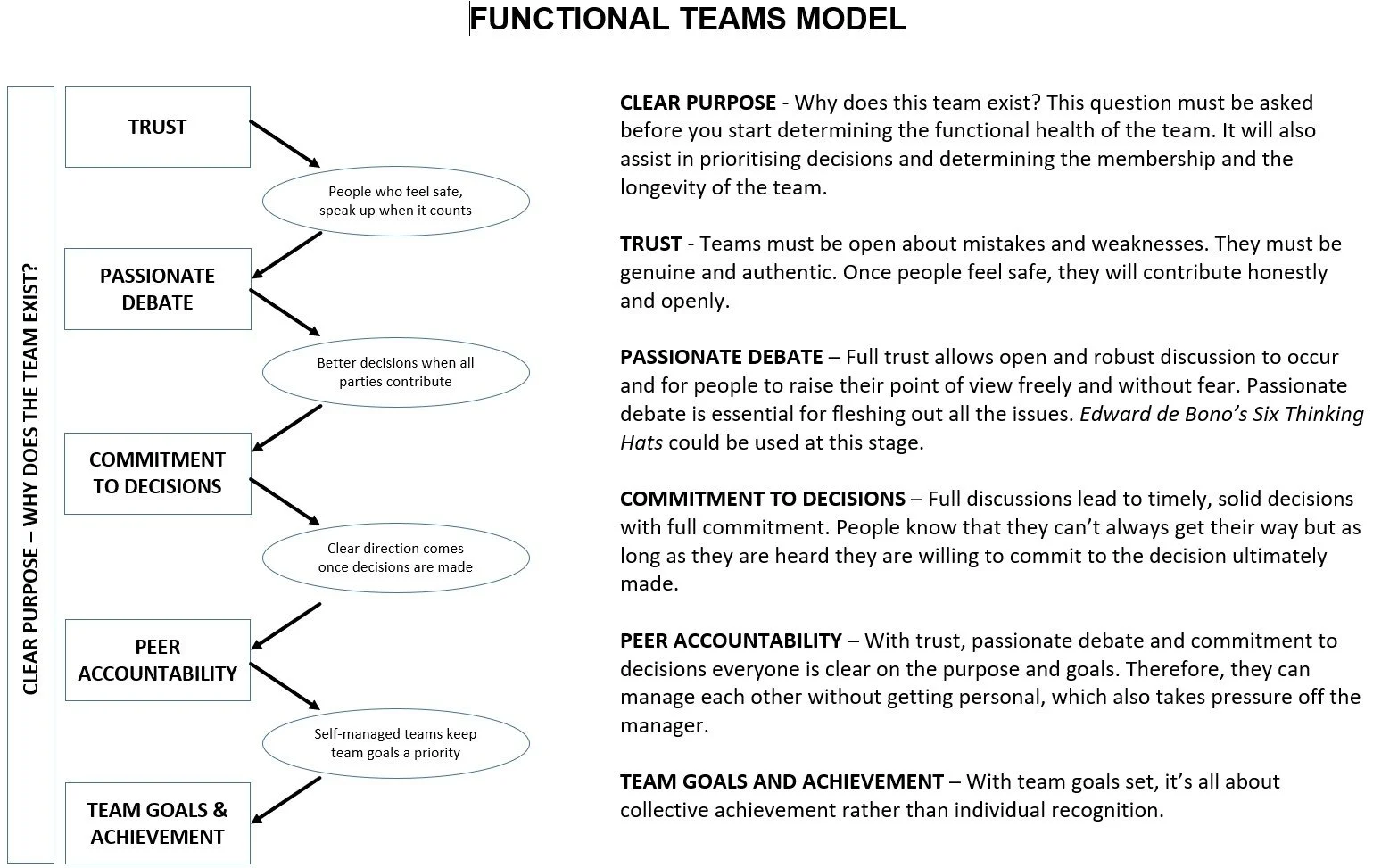Creating Functional Teams
By Megan Davidson
With the isolation of working from home, it’s even more important to build strong, functional teams. According to Surowiecki in The Wisdom of Crowds (2004) the average answer of the group will be equal to, or better than, the smartest member in the group.
However, maximising output of individuals is only one aim of team building. In a world where ‘psychosocial hazards’ are now on the tip of tongues, we need to connect our people. We want them to be in a safe environment, where they can contribute to the conversation, and be part of the decision making process. This demonstrates we are prioritising our psychosocial obligations.
Some leaders fear asking their staff for input because they may have to reject their ideas. However, we need to give our staff more credit. They understand that it’s not always about getting their way. It’s about feeling they have a seat at the table, and their thoughts and ideas have been heard and considered. If the decision sways the other way, then that’s ok. Productive teams understand that’s how it works.
Patrick Lencioni talks about the 5 dysfunctions of a team: (1) absence of trust, (2) fear of conflict, (3) lack of commitment, (4) avoid accountability, (5) inattention to results. Check out a video by Patrick here. He talks about vulnerability trust and the need for people to not be scared to contribute.
To flip Patrick’s work into making a functional team, see attached diagram. Essentially, we need to start with a CLEAR PURPOSE. Why does this team exist? This question must be asked before you start determining the functional health of the team. It will also assist in prioritising decisions and determining the membership and the longevity of the team.
Once the purpose of team has been established the team have a clear focus and we can build TRUST. Teams must be open about mistakes and weaknesses. They must be genuine and authentic. Once people feel safe, they will contribute honestly and openly.
When people feel psychologically safe, they will be able to engage in PASSIONATE DEBATE. Full trust allows open and robust discussion to occur and for people to raise their point of view freely and without fear. Passionate debate is essential for fleshing out all the issues.
Full discussions lead to timely, solid decisions with full COMMITMENT TO DECISIONS. People know that they can’t always get their way but as long as they are heard they are willing to commit to the decision ultimately made.
With trust, passionate debate and commitment to decisions everyone is clear on the purpose and goals. Therefore, they can manage each other through PEER ACCOUNTABILITY without getting personal. This takes pressure off the leader.
The focus is then towards TEAM GOALS AND ACHIEVEMENT rather than individual recognition. When the team wins, everyone wins.

